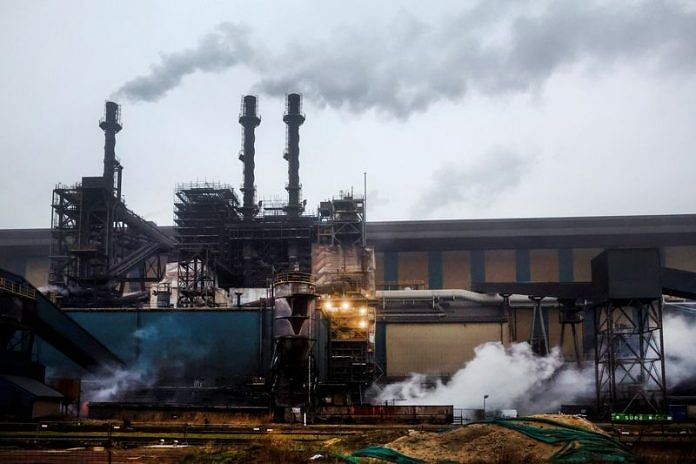By Forrest Crellin
(Reuters) – Investment in the green energy transition needs to double to $3.5 trillion per year if the world is to meet the Paris Agreement’s goal of reaching net zero emissions by 2050, a report by Wood Mackenzie said on Tuesday.
On top of the investment gap, the consultancy’s analysis said global efforts to shift to cleaner power were under pressure from concerns over energy security, and tariffs and trade barriers that are stunting electrification growth globally.
The report said no major country and just a few companies were on track to meet the 2030 climate targets set out in the Paris Agreement.
WHY IT’S IMPORTANT
Strong nationally determined contributions (NDCs) and global cooperation will be crucial to mobilising the $3.5 trillion investment, climate experts say. If such challenges are not overcome, much more money could be needed to fund mitigation and adaptation.
BY THE NUMBERS
Solar and wind’s share of global power supply is expected to reach between 25% and 36% of total power output by 2030, after growing to 17% in 2024 from 4.5% in 2015, the analysis showed.
Gas demand is expected to have a wide range of outcomes, with demand rising by 11% in 2050 in the scenario that limits warming to 2.5 degrees Celsius (4.5 Fahrenheit), while the net zero scenario would see it decrease by 47% over the same period, the report said.
KEY QUOTE
“A string of shocks to global markets threaten to derail the progress in a decade pivotal to the energy transition,” said Prakash Sharma, vice president, head of scenarios and technologies for Wood Mackenzie.
“However, there is still time for the world to reach net zero emissions by 2050 – provided decisive action is taken now,” he said.
CONTEXT
Displacing fossil fuels with renewable power sources in electricity generation is a pillar of the energy transition that seeks to meet the Paris Agreement target to limit global temperature rises to 1.5 C (2.7 F).
The renewable power supply has risen sharply in recent years to try to achieve goals on cutting emissions, but it is not growing fast enough to push fossil fuels out of the energy mix.
(Reporting by Forrest Crellin in Paris; Editing by Helen Popper)
Disclaimer: This report is auto generated from the Reuters news service. ThePrint holds no responsibilty for its content.






